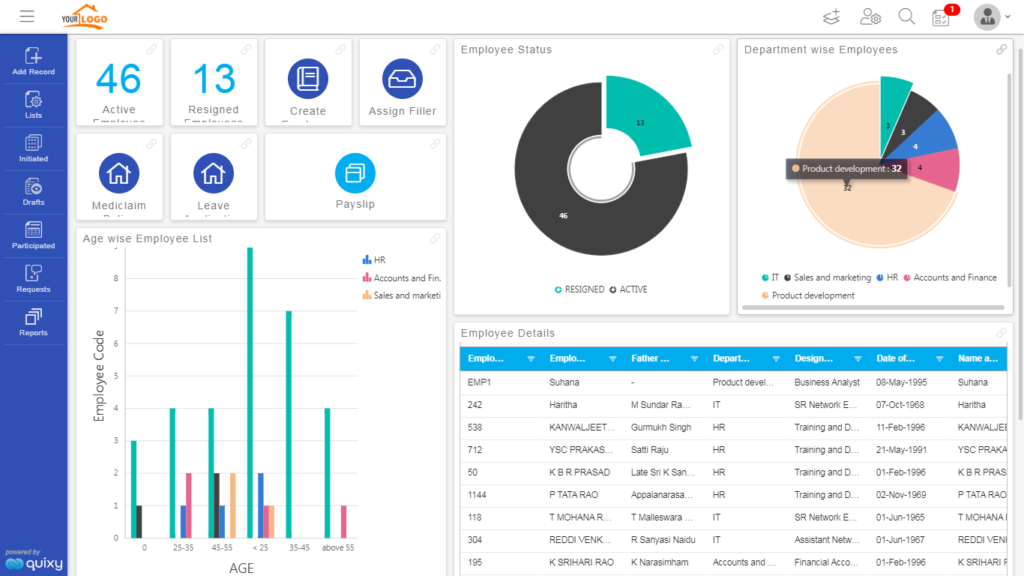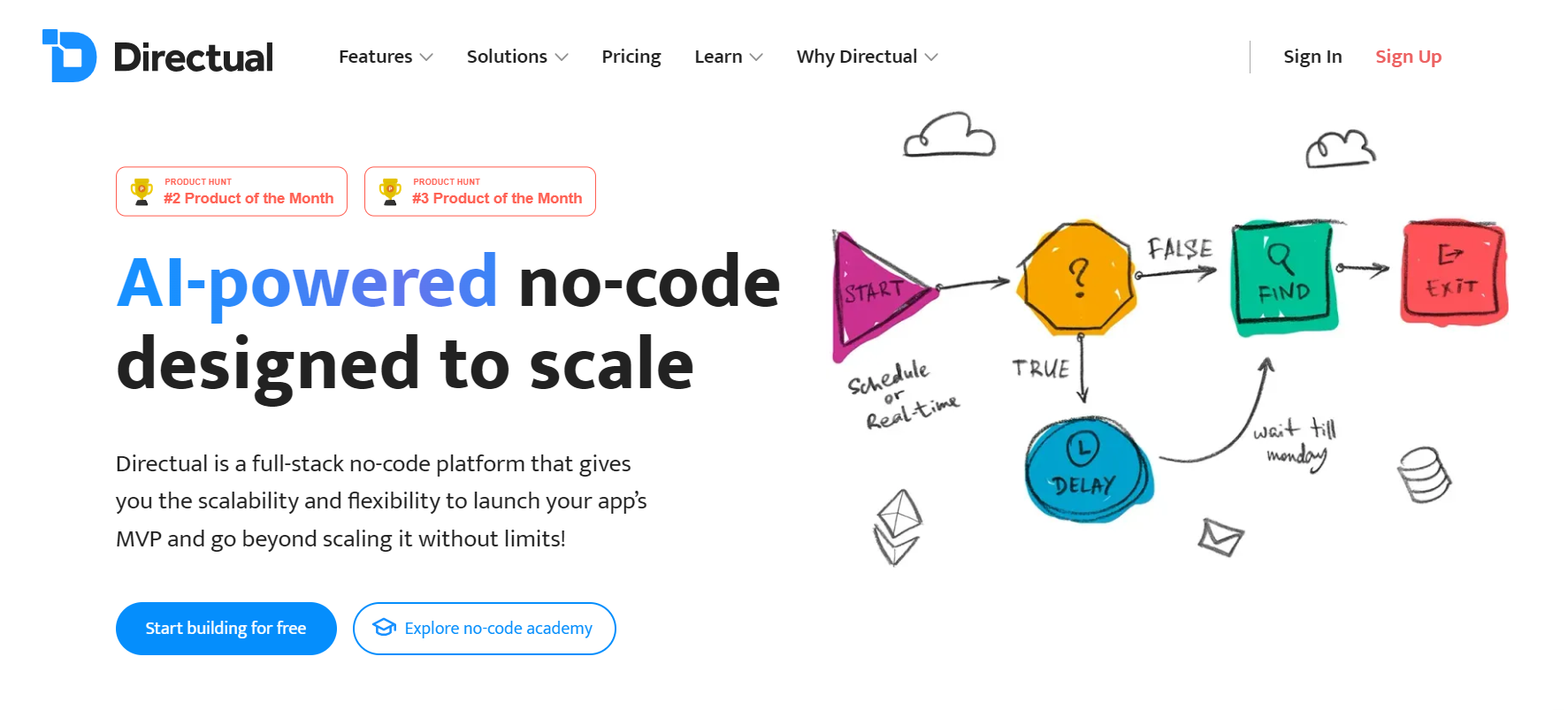No-Code Open System Data Source Development: Streamline Facility Development Tasks
No-Code Open System Data Source Development: Streamline Facility Development Tasks
Blog Article
Checking Out the Advantages of Scalable Data Sources That Need No Coding Skills for Reliable Data Administration Solutions
The development of scalable databases that remove the requirement for coding abilities presents a transformative opportunity for organizations looking for effective data administration options. As we think about the effects of such advancements, it becomes vital to examine how they can reshape the landscape of information management and drive lasting development in an affordable environment.
Enhanced Accessibility for Individuals
Boosted ease of access for customers is a vital facet of scalable databases, making sure that information monitoring systems are straightforward and instinctive. In an age where data-driven choices are paramount, ease of access permits a wider variety of customers, consisting of those without considerable technological expertise, to involve with database systems efficiently. This democratization of information accessibility helps with enhanced collaboration across departments, equipping workers to make and remove insights notified decisions.
Easy to use user interfaces, such as visual data and drag-and-drop functions depiction, streamline complicated data interactions. These improvements reduce the discovering contour connected with conventional database administration, enabling individuals to concentrate on leveraging data instead of facing technological complexities. Scalable databases often integrate real-time analytics and customizable dashboards, supplying individuals with prompt insights customized to their particular requirements.

Cost-Effectiveness and Source Cost Savings
Reliable information administration not just depends upon availability but likewise on cost-effectiveness and source financial savings. Scalable databases developed for users without coding abilities significantly minimize monetary problems typically linked with conventional database management systems. By getting rid of the demand for specialized shows knowledge, organizations can assign their sources extra successfully, focusing funds on core company activities rather than substantial training or working with proficient workers.
Additionally, these data sources frequently use cloud-based services, which additionally reduce expenses associated with hardware and maintenance. Organizations can scale their database services according to their needs, preventing the expenditures sustained from over-provisioning sources. This versatility implies services can adapt to changing demands without sustaining unnecessary costs, causing considerable lasting cost savings.
Additionally, user-friendly interfaces simplify information entry and administration processes, reducing the time spent on administrative jobs. This efficiency translates into labor price financial savings, allowing teams to focus on tactical campaigns instead of regular maintenance. Generally, embracing scalable data sources that require no coding abilities fosters a much more affordable technique to information monitoring, making it possible for organizations to optimize their sources while preserving high degrees of operational efficiency.
Improved Collaboration Throughout Teams

Moreover, scalable databases promote seamless communication among team participants. With user-friendly user interfaces that require no coding abilities, staff members can conveniently develop, modify, and share records or control panels tailored to their specific requirements. This democratization of information empowers non-technical individuals to contribute understandings, boosting the collaborative setting.
Additionally, these data sources support simultaneous accessibility, permitting multiple users to work with the very same dataset concurrently. This function enhances productivity, as groups can involve in joint information evaluation without the threat of version control concerns. The capability to leave remarks or notes straight within the database further promotes discussion and clears up information interpretations.
Streamlined Information Management Processes
In today's data-driven environment, companies recognize the need of structured information monitoring processes to maximize effectiveness and precision. By leveraging scalable databases that need no coding abilities, businesses can simplify their information handling and lower the intricacies typically connected with typical data source systems. This ease of access encourages non-technical users to involve directly with information, facilitating quicker decision-making and lowering dependence on specialized IT workers.
Streamlined data management processes enhance workflow our website by automating regular jobs such as information entrance, validation, and reporting. Automated information integration ensures that info from various sources is aggregated effortlessly, getting rid of silos and fostering an unified sight of crucial business metrics (no-code). Furthermore, easy to use user interfaces allow employees to control data easily, allowing them to generate understandings that drive tactical campaigns without the requirement for comprehensive training.
This performance not only accelerates functional processes yet additionally decreases the potential for human mistake, making certain that data continues to be reliable and accurate. Eventually, streamlined data management processes through scalable data sources cause improved productivity, allowing companies to concentrate on core activities while ensuring that their data monitoring practices are reliable and effective.
Scalability for Expanding Services

For broadening ventures, the capacity to scale up or down is essential. A scalable database can deal with an increase of data generated from brand-new customers, items, or services, ensuring that organization procedures continue to be nonstop. These databases give the capability to take read this article care of peak loads efficiently, which is necessary throughout durations of fast growth or seasonal spikes.
Additionally, numerous scalable data source solutions are created with easy to use interfaces that call for no coding abilities, equipping non-technical staff to handle data successfully (no-code). This democratization of information administration permits organizations to hop over to these guys assign resources purposefully and decrease reliance on specialized IT personnel
Eventually, taking on a scalable database not just improves functional efficiency however additionally cultivates an atmosphere where companies can introduce and advance without the constraints of conventional database systems. This adaptability placements companies for long-lasting success in today's affordable landscape.
Verdict
In final thought, scalable databases that call for no coding skills give substantial advantages for reliable information monitoring. These systems enhance accessibility for non-technical individuals, minimize operational costs, and promote collaboration throughout groups. By improving information monitoring processes and using scalability for expanding organizations, such remedies make it possible for companies to adjust to transforming needs successfully. Eventually, the adoption of these easy to use databases promotes innovation and settings services for long-term success in a vibrant setting.
Boosted access for users is an important facet of scalable databases, making certain that data administration systems are intuitive and straightforward.Easy to use user interfaces, such as drag-and-drop features and aesthetic data depiction, streamline complex data communications. Generally, embracing scalable databases that call for no coding abilities cultivates a more affordable method to information monitoring, allowing companies to optimize their resources while preserving high levels of functional effectiveness.
By leveraging scalable data sources that require no coding skills, businesses can streamline their information handling and minimize the complexities typically connected with conventional database systems - no-code.Structured data administration procedures boost workflow by automating regular jobs such as information entrance, validation, and reporting
Report this page